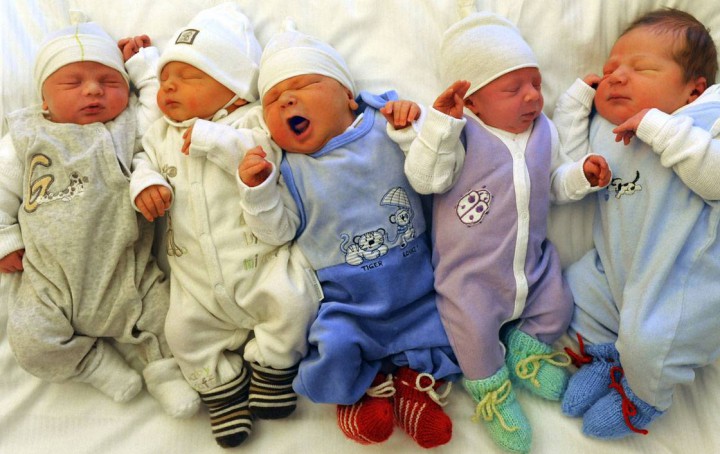TORONTO – Ewa Amarelo is happily making her contribution to science.

The 27-year-old expectant mom is about six months pregnant and showing. In between juggling work and shopping on the weekends with her husband for a crib, stroller and supplies, she’s chronicling her health throughout her pregnancy for research’s sake.
She’s one of 1,200 pregnant women this year offering their health data to the Ontario Birth Study.
Mount Sinai Hospital, which is spearheading the project, says it’s the largest and most detailed Canadian study of its kind to track the health of women and their babies. It’s also the most comprehensive, drawing on experts across all fields including doctors, pediatricians, child psychologists and early childhood researchers.
The landmark study hopes to document women’s health through pregnancy and up to six weeks after birth. Following the Ontario Birth Study, parents can enroll their infants in the TARget Kids study, another Canadian initiative led by Sick Kids and St. Michael’s Hospital that’s following more than 5,000 babies into adolescence.
It’s these long-term studies that lead to major advances in better understanding health.
“There’s a lot of interest in understanding the impact of various exposures, whether it be environmental or otherwise on pregnancy. This study is really a platform to be able to allow clinicians and investigators from all disciplines to look at it together and combine information,” said Dr. Alan Bocking, chair of the steering committee overseeing the study.
- Premier Moe responds to Trudeau’s ‘good luck with that’ comment
- Drumheller hoping to break record for ‘largest gathering of people dressed as dinosaurs’
- As Canada’s tax deadline nears, what happens if you don’t file your return?
- Planning a summer trip to Quebec’s Îles-de-la-Madeleine? You’ll have to pay up
Bocking told Global News the plan is to continue the Ontario Birth Study, even after its tracked 1,200 subjects so there’s a steady stream of subjects. Ideally, the babies will be studied into adulthood, providing a wealth of information on growing up in Canada.
“Our goal as a group of investigators is to be able to follow these children into adolescence and into adulthood. We know some of the exposures in utero, newborn stages and early childhood contribute to children and adults’ lifelong health,” Bocking said.
A few serious pregnancy complications will be looked at: premature labour, problems with fetal growth and pre-eclampsia, which is when expectant moms encounter high blood pressure during pregnancy.
There is also string of issues at play in studying pregnancy outcomes, Bocking said. Researchers around the world are trying to gain more insight on how outside factors can affect babies in utero. How does mom’s diet affect baby’s food preferences? What about exposure to different stimuli in the womb – does it affect learning? Does exercise in early childhood help fight against obesity in later years?
While scientists are still in the recruiting stages of the study, they’ve already worked with more than 150 women.
The subjects are typically about 12 to 14 weeks pregnant at the start of the study. They’ll complete a handful of online surveys documenting their lifestyle, diet and fitness. They’re asked about their family history, what medications they use, how much alcohol they consumed prior to pregnancy and their eating habits.
From pregnancy to delivery, the women also offer blood tests every few months.
The study mirrors a popular western Australian project, called the Raine Study, in which 2,900 mothers were followed from 1989 to 1991 as they went through pregnancy. Those babies were followed well into their 20s.
That study led to breakthrough research – even recent findings on the link between breastfeeding and developing obesity, Bocking said.
“Not only do we want to be able to do that in Canadian women, we want to do this on an ongoing basis and help to direct and inform the care women and children receive,” he told Global News.
Right now, because of logistics in collecting blood samples, women are only recruited if they plan on having their baby delivered at Mount Sinai Hospital.
The subjects must be at least 18 years old and less than 16 weeks pregnant.
carmen.chai@globalnews.ca
Follow @Carmen_Chai



Comments